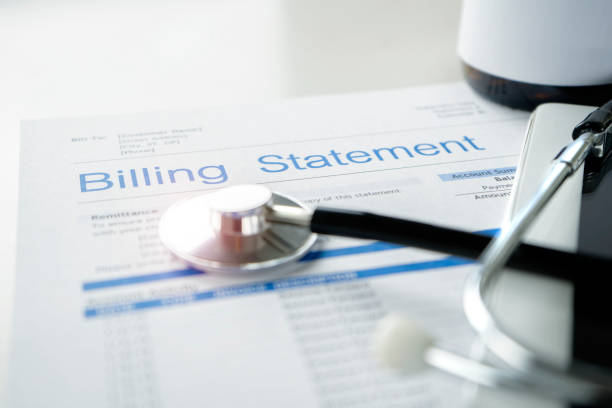Home health care services are essential to millions of people who need medical care in the comfort of their homes. However, home health billing is one of the most complicated aspects of providing these services. Billing correctly is not just about submitting claims; it involves understanding coding, regulations, payer rules, and patient care requirements. Home health billing must be precise, efficient, and compliant to ensure that the services provided are reimbursed properly.
This comprehensive guide will walk you through the importance of home health billing, the key components of the process, best practices to follow, common pitfalls to avoid, and how to ensure clarity and results for your home health agency.
Introduction to Home Health Billing
Home health billing refers to the process of submitting claims to insurance companies, Medicare, Medicaid, or other payers for services rendered to patients in their homes. These services can include skilled nursing care, physical therapy, occupational therapy, speech therapy, and other related services. The process is critical because it ensures your agency gets paid for the services it provides while maintaining compliance with regulations.
For a home health agency, getting billing right is essential to sustain operations and maintain positive relationships with clients, insurance companies, and regulatory bodies. This guide is designed to help you achieve just that.
The Importance of Accurate Home Health Billing
Accurate billing is essential in the home health industry because it directly impacts cash flow, compliance, and patient satisfaction. If billing is incorrect, the agency risks delays in payments, denials, or even penalties from regulatory authorities. Here’s why accuracy matters:
- Timely Payments: Accurate billing ensures that your agency is paid promptly for the services you provide.
- Regulatory Compliance: There are strict regulations that govern home health care. Billing errors can lead to audits, fines, or even the suspension of payments.
- Minimizing Denials: Mistakes in coding or submitting incorrect information can lead to claim denials, causing delays in reimbursement.
- Maintaining Reputation: Patients and payers expect transparency. Clear and accurate billing builds trust and ensures smooth operations.
Key Components of Home Health Billing
There are several key components involved in home health billing that need to be properly understood and managed:
Medical Coding
Medical coding involves assigning codes to diagnoses, services, and procedures. Accurate medical coding is crucial because it directly affects the reimbursement process. The main coding systems you need to be familiar with are:
- ICD-10 Codes: These codes describe the diagnosis or condition of the patient. ICD-10 codes are used to justify the medical necessity of the services provided.
- CPT Codes: The Current Procedural Terminology (CPT) codes are used to describe the services or procedures rendered, such as nursing visits or physical therapy.
- HCPCS Codes: The Healthcare Common Procedure Coding System (HCPCS) is used for services that are not covered by CPT codes, like home health aide services or durable medical equipment (DME).
Billing Forms and Software
Home health billing often requires the use of standardized forms, such as the UB-04 form for institutional claims or CMS-1500 forms for professional services. Many agencies also use billing software that automates many aspects of the process, making it easier to track claims and ensure they are submitted correctly.
Patient Information and Documentation
Before submitting a claim, home health agencies need to gather the correct patient information, including:
- Personal and insurance details
- Physician orders for home health care
- A detailed care plan that outlines services to be provided
- Progress notes documenting services provided and patient response
Best Practices for Home Health Billing
Ensuring clarity and results in home health billing services is no easy task, but following these best practices will help your agency stay on track:
Verify Insurance Information
Before providing any services, always verify the patient’s insurance coverage. This step will help you understand what services are covered and what co-pays or deductibles may apply. Verification ensures that there will be no surprises when the claim is submitted.
Use Accurate Coding
Using the correct codes is the foundation of successful billing. Incorrect codes can lead to claim denials and even audits. Always ensure that your coding is up-to-date and reflects the services rendered. It’s also important to include any modifiers required to explain the circumstances of the services.
Maintain Detailed and Accurate Documentation
Documentation is essential to support your claims. If a payer asks for more information, having accurate and complete documentation will help ensure that your claims are processed smoothly. Keep detailed records of the patient’s condition, services provided, and physician orders.
Submit Claims on Time
Each payer has a specific deadline for submitting claims. Be sure to submit your claims on time to avoid penalties or claim denials. If you miss a deadline, you may not be able to collect payment for the services provided.
Follow Up on Unpaid Claims
It’s essential to stay on top of unpaid claims. Review all claim denials carefully and resubmit them if necessary. If the payer requires additional information, provide it promptly to ensure the claim is processed efficiently.
Train Your Staff Regularly
Billing is complex and always evolving. Regular training for your billing team is crucial to ensure they stay up-to-date on coding changes, payer policies, and regulations. Encourage your team to attend workshops, webinars, and other industry events to expand their knowledge.
Common Pitfalls to Avoid in Home Health Billing
Even with the best intentions, mistakes in home health billing can occur. Avoid these common pitfalls to ensure clarity and results:
Failing to Verify Patient Eligibility
Failing to verify a patient’s eligibility for insurance coverage can result in denied claims. Always verify insurance coverage and ensure the patient is eligible for home health services before proceeding.
Incorrect or Outdated Coding
The healthcare industry is constantly updating codes, so it’s important to stay current. Using outdated or incorrect codes can result in claim denials or delays in payment.
Inadequate Documentation
Missing or inadequate documentation is one of the most common reasons for claim denials. Ensure that all services provided are well-documented and match the claims submitted.
Missing Filing Deadlines
Insurance companies have strict deadlines for submitting claims. Failing to file within the required time frame could result in the denial of your claims.
Overlooking Patient Responsibilities
Patients may have co-pays or deductibles that they are responsible for. Ensure that these amounts are clearly explained to the patient and included in the billing process.
Handling Claim Denials and Appeals
Even the best billing processes can result in claim denials. When a claim is denied, you must understand the reason for the denial and take the necessary steps to correct the issue. Here’s how to handle claim denials:
Review the Denial Code
Each denied claim will come with a denial code that explains why the claim was not paid. Review the code carefully to understand what went wrong. Common denial reasons include coding errors, lack of documentation, or insurance ineligibility.
Correct and Resubmit the Claim
If the denial was due to an error in coding or documentation, make the necessary corrections and resubmit the claim. Be sure to provide any supporting documentation that may have been missing.
Appeal Denials When Necessary
If you believe the claim was denied incorrectly, you have the right to appeal the decision. Submit an appeal letter, along with any additional information or documentation, to support your case.
Technology in Home Health Billing
Technology is a game-changer in the world of home health billing. With the right tools and software, home health agencies can improve efficiency, reduce errors, and ensure timely payments. Here are some technologies to consider:
- Billing Software: Using dedicated medical billing services software can automate much of the process, including code selection, claim submission, and tracking.
- Electronic Health Records (EHR): EHRs streamline documentation by allowing home health professionals to track patient care and services in real-time.
- Automated Eligibility Verification: Automated tools can verify patient insurance eligibility and benefits in real-time, reducing the risk of billing errors.
- Claims Management Systems: These systems track the status of submitted claims and alert the billing team to any issues or required follow-ups.
Improving Cash Flow with Efficient Home Health Billing
One of the most important outcomes of efficient home health billing is improved cash flow. Here’s how you can optimize cash flow for your agency:
- Streamline Your Billing Process: Use automated tools to reduce manual errors and accelerate claim submissions.
- Track Outstanding Payments: Monitor unpaid claims regularly and follow up with payers or patients when necessary.
- Offer Payment Plans: Offer flexible payment options to patients who may have trouble paying their bills in full.
- Review Your Fee Schedule: Make sure your fee schedule is competitive and aligned with industry standards.
Conclusion
Home health billing is an essential part of running a successful home health agency. By understanding the key components of billing, following best practices, avoiding common pitfalls, and using technology to streamline the process, you can ensure that your agency operates efficiently and is reimbursed for the services it provides.
Accuracy and clarity are the cornerstones of effective billing, so ensure that your team is well-trained, your coding is accurate, and your documentation is complete. With the right approach to home health billing, you can maximize results and maintain a healthy financial future for your agency.
FAQs
How can I avoid home health billing errors?
Stay up to date on coding changes, verify insurance details before providing services, and ensure proper documentation for every service rendered.
What are common reasons for claim denials?
Common reasons include incorrect coding, lack of documentation, and missing or late submissions.
What are the main coding systems used in home health billing?
ICD-10, CPT, and HCPCS codes are the main coding systems used in home health billing.
How do I improve my cash flow with home health billing?
Streamline your billing process, track outstanding payments, offer payment plans, and review your fee schedule regularly.
Review the denial code, correct any errors, and resubmit the claim. If needed, submit an appeal with supporting documentation.


